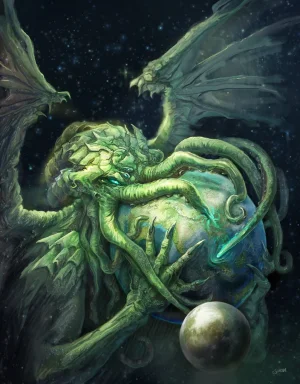Trifoilum
find wisdom, build hope.
- MBTI
- INFJ
- Enneagram
- 6w5
.....We have a ton of discussion regarding this matter and so I say, eeeh, fuck it.
Let's have fun, play God and abolish religion! And because I'm playing God I'm ignoring the irony of the statement! Anyway!
Imagine two worlds without religion*:
One does not know any religion since the beginning of time.
and the other just finally broke free from the clutches of religion.
They exist in the same continuum of time and space and humanity on the two world begin to appear at roughly the same time.
Astronomically and geographically they are almost similar to Earth, with significant differences in shape but still comparable to each other.
Physically and physiologically they started up similar within each other.
How would they end up? How would the history unfold? What would cause the second world to abolish religion altogether?
What would be different between these two worlds? between them and our world?
Have fun.
*)Oh god oh god I'm so tempted to use A World Without Worships, but that doesn't make sense aaaaa.
Let's have fun, play God and abolish religion! And because I'm playing God I'm ignoring the irony of the statement! Anyway!
Imagine two worlds without religion*:
One does not know any religion since the beginning of time.
and the other just finally broke free from the clutches of religion.
They exist in the same continuum of time and space and humanity on the two world begin to appear at roughly the same time.
Astronomically and geographically they are almost similar to Earth, with significant differences in shape but still comparable to each other.
Physically and physiologically they started up similar within each other.
How would they end up? How would the history unfold? What would cause the second world to abolish religion altogether?
What would be different between these two worlds? between them and our world?
Have fun.
*)Oh god oh god I'm so tempted to use A World Without Worships, but that doesn't make sense aaaaa.

